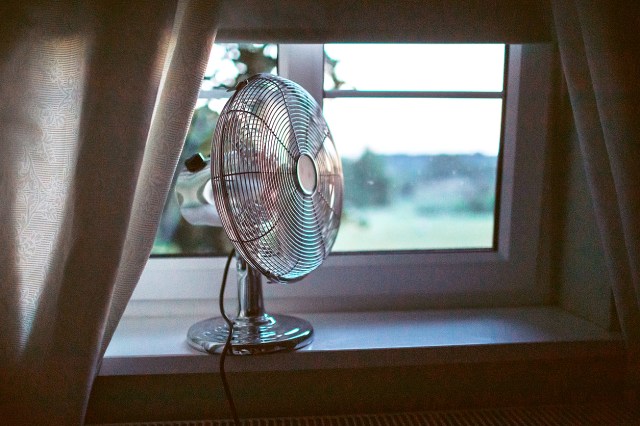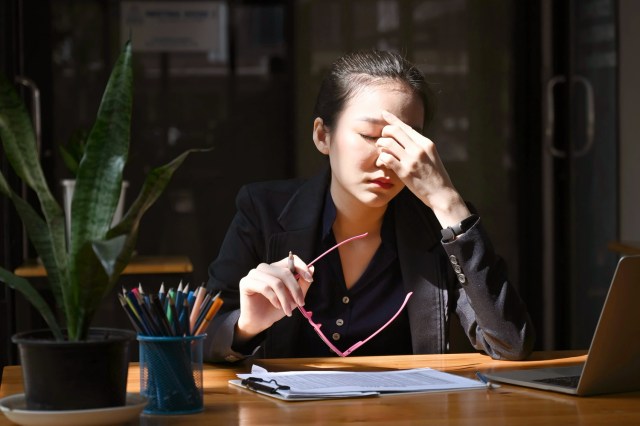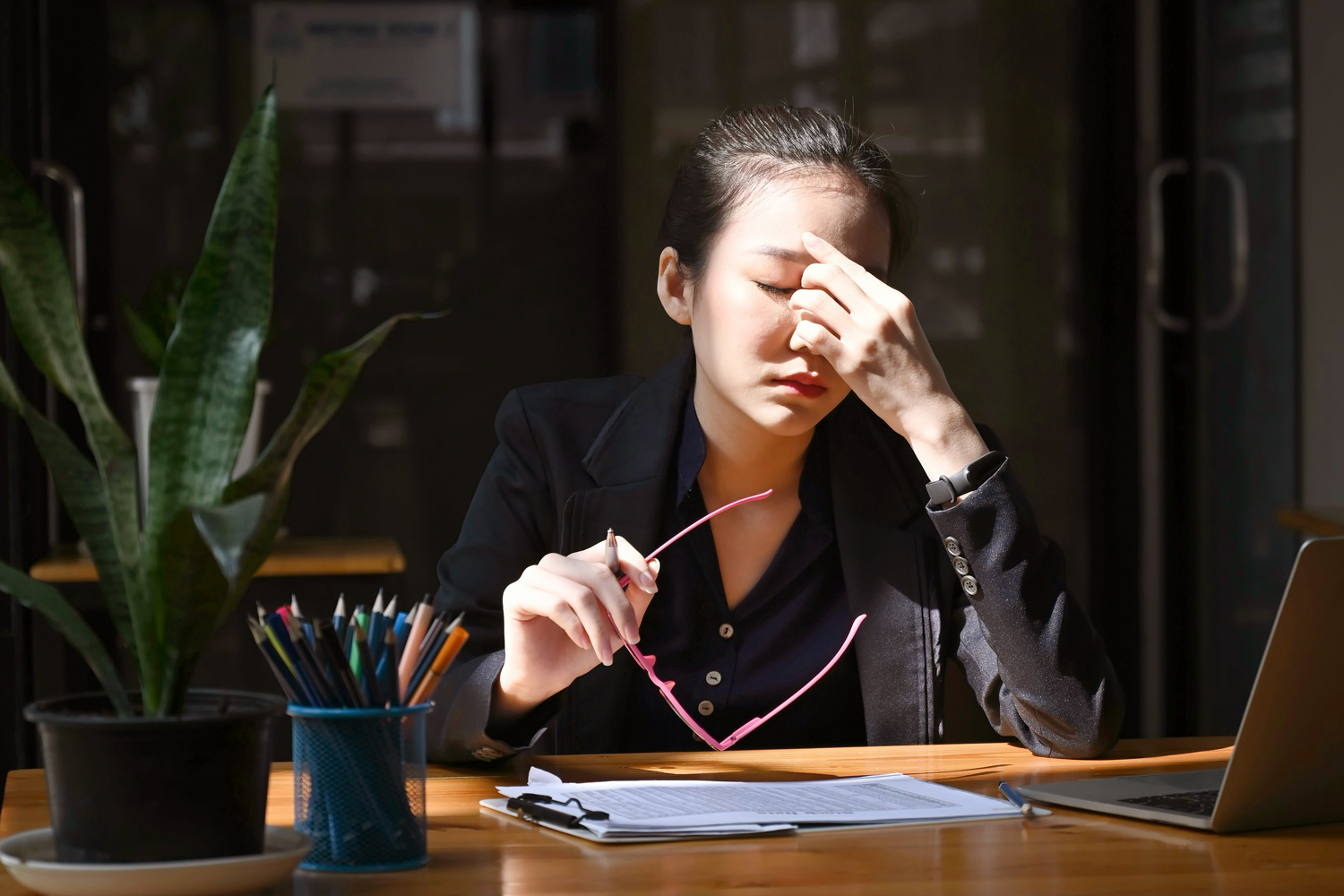We’ve all been there: tossing and turning throughout the night, anxious about being tired the next day. Sometimes the reasons for a lack of sleep are clear. Other times, it can feel like a complicated puzzle you have to put together without much to go on.
Not being able to sleep can affect so much more than just that one night. Insufficient rest can lead to irritability, anxiety, and even impaired emotional judgment in subsequent days. Chronically, it can cause even deeper issues, such as depression, diabetes, and even heart disease.
If you’ve been going days, weeks, or even months without sleeping well, it could be an issue you need to tackle with your doctor. They might be able to put you on a schedule that helps or even prescribe medication. But if you don’t think you’re quite there yet, this advice can help.

1. The Temperature in Your Bedroom Is Wrong
According to Laura Purdy, M.D., MBA, a board-certified family medicine physician, it’s hard to pinpoint a single issue of restlessness, since so many factors go into a good night’s sleep. However, understanding your sleep environment is a quick and easy way to start tackling the issue.
Your sleep environment is essential to getting quality shut-eye, and the right temperature is a big part of that. “Feeling too hot or too cold can create an uncomfortable sleep environment and can cause your body to feel restless,” Dr. Purdy says. “Feeling uncomfortable and wearing too many layers —or not enough and feeling cold — can also cause your body to be on edge and uncomfortable, which makes winding down to sleep difficult.”
Experts agree the optimal temperature for sleep is between 60 and 65 degrees Fahrenheit, so try lowering your thermostat if you’re feeling warm.

2. There’s Too Much Light
Do you sleep with a night-light or have light coming into the room from elsewhere? This might be doing you unknown harm. “Light sends signals to the brain and your brain responds to that light,” Dr. Purdy warns. “This can make you feel like it's time to be awake, so this can cause feelings of alertness. Likewise, too much noise can make it difficult to fall asleep and stay asleep.” (Yes, the TV being on counts.)

3. You Drank Alcohol or Caffeine
Some people might think having a nightcap will help them drift off to sleep faster, but it actually inhibits the quality of the sleep you have throughout the night. People who drink alcohol at night might also notice that they wake up in the middle of the night after that initial buzzy doze-off. Drinking may momentarily help sleep, but it’ll affect the quality of your sleep so it’s not worth it in the long run.
Similarly, if you have caffeine too late in the day, it might linger later on when you’re trying to get some shut-eye. “Caffeine stimulates your brain and can make you feel more alert, which can make you stay awake longer,” Dr. Purdy says. “This impacts your body's natural cycles to want to sleep and may cause you to be awake.”

4. You Don’t Have a Bedtime Routine
According to Jade Wu, Ph.D., a behavioral sleep medicine psychologist, sleep adviser with Mattress Firm, and author of the book Hello Sleep, “falling asleep is less like turning off a switch and more like going down a ramp.”
What does that mean? “Your body needs a gradual wind down and you need to work toward turning your brain off — including decreasing body temperature, slowing heart rate, relaxing muscles, and quieting mental activity — to prepare for good quality sleep,” Dr. Wu says.
When your sleep routine is done consistently, “it can help to signal the body that it's time to wind down at around the same time every evening, which keeps circadian rhythms steady and makes it easier to get good sleep,” she adds. Dr. Wu encourages following a sleep routine every day of the week, even on weekends, to get back on track.

5. You’re Stressed Out
Another possible reason you’re not sleeping well is that you’re putting too much pressure on sleeping in the first place. “We need to have flexibility in our relationship with sleep, just like we do with our friendships,” Dr. Wu says. “It is important to understand that not everything you need to do for better sleep has to be elaborate, and we need to stop putting so much pressure on ourselves, as too many specific steps done with too much perfectionism may be counterproductive.”
Stressing about sleep sends “a message to our bodies that sleep is something tricky or daunting, so I always encourage those to look at their sleep habits with some grace,” she says.

6. You’re Not Moving Enough Throughout the Day
You don’t need to join a hard-core fitness class to reap the benefits of more movement throughout the day. In fact, Dr. Wu says the solution is as simple as walking more. “With the work-from-home lifestyle, it is very possible that our bodies are not getting enough activity, so I encourage taking morning or early afternoon walks,” she says. “Take a walk for about 20 minutes or so as often as you can, and if you can choose, go for a morning walk rather than an after-work walk, since the sun is higher in the sky during that time.”

7. You Ate a Heavy Dinner Late at Night
Sleep experts agree there’s a correlation between diet and sleep. “For example, eating greasy or sugary foods can be hard to metabolize, which keeps the body temperature high, making it harder to fall and stay asleep,” Dr. Wu says, citing recent research. “During the day, incorporating fruits and vegetables, nuts, seeds and whole grains, seafood, poultry, and yogurt will help achieve optimal sleep.”
If your sleep issues are chronic, it might be worth checking in with your health provider. But the tips above are easy and actionable ways to try to improve your sleep hygiene from home.
This article is for general informational purposes only.
Affiliate Disclaimer Medical Disclaimer











 Unique Beauty is free for all users.
Unique Beauty is free for all users.